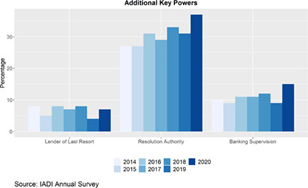Fintech and financial consumer protection
Fintech in Vietnam is currently developing in three service areas: payment systems, peer-to-peer (P2P) lending, and crowdfunding.
Over the past decade, under the influence of the Industrial Evolution 4.0, the explosion of technology—especially handheld multimedia devices, Internet of Things (IoT), Artificial Inteligence (AI), and Big Data—has led to the robust growth of fintech. This evolution has brought forth numerous benefits, but also posed challenges. Fintech, at the positive side, has changed the way financial services are provided, such as faster and more efficient transactions, lower costs, less stringent requirements, and unsecured credit granting, reaching previously underpriviledged groups like low-income households and small businesses. A recent research by the International Monetary Fund (IMF) shows that fintech has contributed to promoting financial inclusion, economic recovery and growth during and after crises.
However, the rapid development of financial technology, particularly fintech, has induced market complexity with more risks and uncertainties, which has been expanded in unprecedented scope and speed. Fintech products are often profound intellectual properties combined with advanced technology, with unpredictable changes that sometimes surpass the grasp and regulation of relevant authorities. This presents challenges for cybersecurity, data security, business environment, business culture and legal framework, etc.
From the perspective of safeguarding financial consumers’ rights and interests, the negative aspects of fintech challenge protection efforts. Despite their vital role, financial consumers are typically disadvantaged and vulnerable in comparison to other entities in the financial market - especially low-income consumers without basic financial market knowledge eventhough they are the majority of the population such as workers, farmers, freelance labourers, etc. The disadvantages and vulnerability of financial consumers compared to entities providing financial products and services in the development of fintech are further amplified and shown in the following aspects: Information asymmetry; disproportion of awareness, understanding, and utilization ofself-protection and protection tools; unequal access to institutions and ability to pursue (often complex and lengthy) disputes and litigation procedures, etc.
Meanwhile, the legal framework regulating fintech activities in Vietnam is currently in the process of being researched, revised, supplemented and accomplished. Specific regulations such as the definition of an operating model, legal status, conditions for establishment and operations, nature and standards of products/services, protection of consumers' rights and interests, especially personal information protection, etc. have not been officially issued yet. The absence of a legal framework is the reason for the lack of financial consumer protection mechanism in fundamental fintech areas, and the weak background for the financial consumers self-protection mechanism while the available risks are very high.
Role of deposit insurance in financial consumer protection
Basically, protecting financial consumers entails safeguarding their legitimate rights. In Vietnam, consumers’ rights are defined and regulated by the Consumer Rights Protection Law. However, the 2023 Consumer Rights Protection Law lacks specific provisions for financial consumers. Furthermore, financial sector laws such as Credit Institutions Law, Law on the State Bank of Vietnam, Securities Law, and Law on Deposit Insurance, etc. outline customer protection but lack guidance for thorough and timely settlement of financial consumers’ claims. The current protection of financial consumers' rights involves five institutions: Vietnam Fatherland Front, State Bank of Vietnam, Ministry of Industry and Trade, Ministry of Information and Communications, and the Consumer Protection Association. However, these institutions have not had specialized divisions and management procedures for financial consumer protection. Additionally, the coordination mechanisms among these institutions lack clarity and obligations, leading to difficulties in resolving conflicts of interest arising in financial product and service usage. A survey conducted by the International Finance Corporation (IFC) in six Asian countries (Indonesia, South Korea, Thailand, Philippines, Malaysia, and Vietnam) revealed that the financial consumer protection in Vietnam had not received adequate attention.
The Deposit Insurance of Vietnam (DIV) is a state financial institution assigned to execute the policy of protecting depositors - an essential part of financial consumers - at insured institutions, contributing to banking safety. Recently, the DIV has demonstrated its performance by directly and indirectly protecting depositors, who are also financial consumers. The DIV directly safeguards depositors by ensuring payout when insured institutions go into default. Additionally, the DIV also indirectly protects depositors through risk monitoring, participating in prevention and resolution of bank failures, and improving financial literacy through dissemination of policy and legal knowledge on deposit insurance.
The DIV plays an important role in protecting depositors. However, there are limitations in the regulations concerning its functions, tasks, and operational mechanisms which may restrict the role and impact of the DIV in protecting financial consumer rights. Some typical limitations can be listed as the insured entities who are depositors at insured institutions only and the insured currencies as VND only.
To better fulfill its task of financial consumer protection, especially in the fintech sector, the DIV should consider the following aspects in line with international principles and practices for effective deposit insurance systems:
Firstly, enhancing financial consumer protection capability: Specifically, increasing charter capital, expanding functions and tasks for transitioning from paybox mandate to risk minimizer mandate with risk supervision. Based on the upgraded capability and role, the DIV should play a more active role in risk monitoring, supporting the resolution of distressed credit institutions, as well as attain a bigger voice in the prevention and resolution of credit institution failures, but not limited to people’s credit funds and micro finance institutions at present. The DIV should also define its independent and active role during the current construction of the financial safety net in Vietnam.
Secondly, strengthening technological integration into professional activities. The application of information technology in professional activities such as premium assessment, risk monitoring, and payout in various forms as softwares, online programs, etc. is very important to execute the activities more precisely, swiftly and cost-effectively compared to traditional processes. Up to now, the DIV has built an IT system to serve professional activities such as collecting supervision data; risk analysis; ranking insured institutions, etc. The DIV has used the Oracle Advanced Analysis tool with highly effective analytical skills and models based on supervisory data from the State Bank of Vietnam, the Banking Supervision Agency, insured institutions and information providers; put into operation the Financial Sector Modernization and Information Management System (FSMIMS) to help computerize all professional activities of the DIV, thereby synthesizing, analyzing and processing information about insured institutions, detecting violations and recommending the State Bank of Vietnam to promptly handle violations of regulations on safety of banking operations, risks causing unsafety to the system. Ultimately, the DIV would be able to protect the rights and interests of depositors, contribute to maintaining the stability of the system of credit institutions, ensuring the safe and sound development of banking activities.
Thirdly, studying and gradually expanding coverage of deposit insurance. For fintech products, it is essential right now to build and accomplish a legal framework for regulating fintech activities with clear provisions for membership, mode of business, type of products and services which should be insured.
Fourthly, enhancing the role of the DIV in improving financial literacy of depositors through digital platforms. Education and dissemination of financial knowledge help people and businesses, especially disadvantaged groups, to access and use basic financial products and services in a convenient, efficient and suitable manner to meet their needs at reasonable costs with minimum risks. In the era of technology 4.0, it is becoming easier to educate and disseminate financial knowledge for depositors through digital platforms. In the past time, the DIV has also actively propagated deposit insurance policy on the mass media. However, the DIV should promote the application of modern technology to improve the understanding of depositors in the coming time. Moreover, the construction and implementation of a comprehensive communication strategy should be a matter of priority.
In general, fintech is an inevitable and objective development trend that cannot be restricted or banned. In the face of the rapid development of fintech, there should be an official mechanism for the DIV to further enhance its role in protecting financial consumers.
Department of Research and International Cooperation (translation)



























